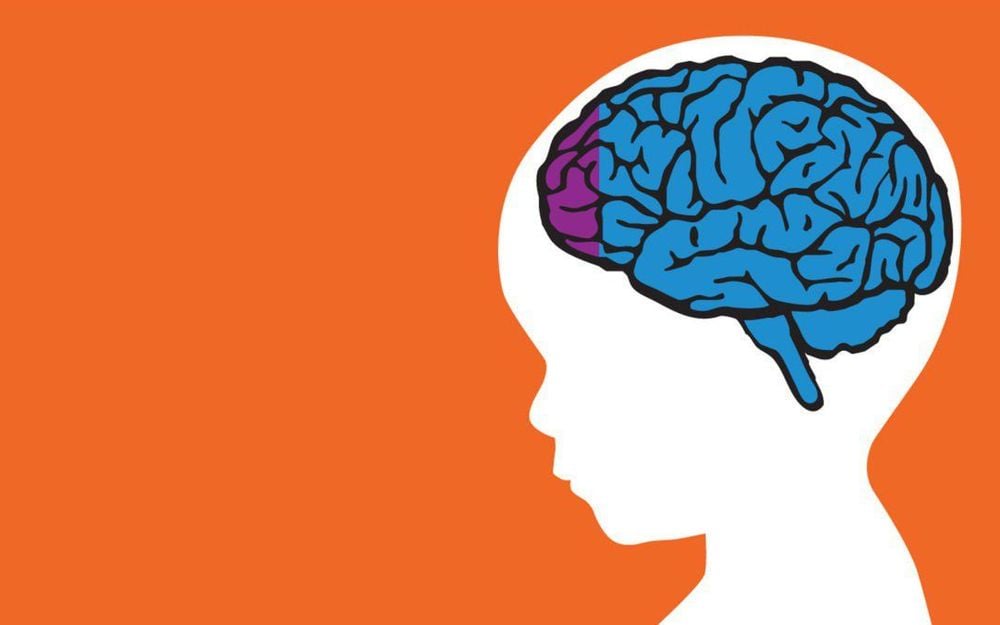At any given time, thousands of chemical reactions occur within the human brain, with numerous chemicals responsible for transmitting information across neural pathways. So, what is the hypothesis of chemical imbalance in the brain? How does this imbalance affect the body and mind?
1. What is the chemical Imbalance in the brain and how does It affect the body?
A chemical imbalance in the brain refers to an abnormal excess or deficiency of specific chemicals, called neurotransmitters, which regulate communication between neurons. These natural substances facilitate communication between neurons. Examples include norepinephrine and serotonin.
When these neurotransmitters are disrupted - what is referred to as a chemical imbalance - the transmission of information between different regions of the brain becomes altered. This can lead to miscommunication and is thought to be a contributing factor to various mental health disorders. Depending on the severity of the imbalance, it may result in conditions such as anxiety, depression, and, in severe cases, schizophrenia.
Mental health conditions such as depression and anxiety are often attributed to chemical imbalances in the brain. This hypothesis is also referred to as the "chemical imbalance theory."
However, it is important to note that the relationship between neurotransmitter levels and mental health conditions remains a topic of debate among experts.
In fact, many researchers have argued to dismiss this hypothesis. They said that the chemical imbalance hypothesis is purely a hypothesis and that there is no scientific evidence to support it. This theory fails to capture the true complexity of mental disorders.
In other words, this hypothesis oversimplifies the complex nature of mental health disorders, which likely involve a combination of other factors.
2. Symptoms of a Chemical Imbalance in the Brain
The idea that mental health conditions are caused by chemical imbalances in the brain was first proposed by scientists in the late 1950s. During this time, research primarily focused on the role of neurotransmitters in depression and anxiety disorders.
Researchers hypothesized that a deficiency in certain neurotransmitters could lead to symptoms such as:
- Persistent feelings of sadness, hopelessness, or emotional emptiness
- Overeating or loss of appetite
- Insomnia or excessive sleep
- Restlessness
- Irritability
- A sense of impending doom or danger
- Low of energy
- Social withdrawal
- Emotional numbness or lack of empathy
- Mood swings
- Thoughts of self-harm or harming others
- Inability to perform daily activities
- Auditory hallucinations (e.g., hearing voices)
- Alcohol or drug abuse
- Difficulty concentrating

3. What Causes Chemical Imbalance in the Brain?
The precise origins and underlying causes of chemical imbalances in the brain remain largely unknown. Researchers believe that both genetic factors and environmental or social factors (such as stress or trauma) play a role in contributing to chemical imbalances.
This hypothesis remains speculative and is often cited as a deduction for mental health conditions. It is suggested that chemical imbalances arise from the neurotransmitter activity between neurons in the brain.
For example, depression is often linked to low serotonin levels in the brain. However, this theory does not explain why these chemicals become imbalanced in the first place or the origin of the imbalance.
According to reports from Harvard Medical School, millions of chemical reactions take place in the brain at any given time, shaping our overall mood and emotions. However, there is no reliable way to determine whether a patient is experiencing a chemical imbalance at a specific moment.
The most common evidence supporting the chemical imbalance hypothesis comes from the effectiveness of antidepressant medications. These drugs help increase the levels of serotonin and other neurotransmitters in the brain.
However, while antidepressant medications can improve a patient’s mood by increasing serotonin levels, this does not necessarily mean that a serotonin deficiency was the root cause of their depression. In many cases, low serotonin may be a symptom of depression rather than its primary cause.
It is also worth noting that many patients with depression do not experience significant improvement from these medications. Studies show that current antidepressants are effective in only about 50% of patients with depression.

4. Are there any tests to detect chemical imbalance in the brain?
Currently, there are no reliable tests available to confirm a chemical imbalance in the brain. Tests that measure neurotransmitter levels using urine, saliva, or blood samples may not be accurate
Research has shown that not all neurotransmitters are produced in the brain alone. The tests available on the market cannot distinguish between the levels of neurotransmitters in the brain and those found in the rest of the body.
Additionally, neurotransmitter levels in both the body and brain fluctuate rapidly, which makes such tests unreliable.
5. Diagnosing Mental Disorders Linked to Chemical Imbalance in the Brain
Mental health conditions are not diagnosed through chemical neurotransmitter tests. A patient's treatment plan will not be based on the results of such tests.
Healthcare providers may order blood tests to rule out other underlying conditions, such as thyroid problems or vitamin deficiencies, which could cause mental health symptoms.
If no physical cause is found, patients may be referred to a mental health professional, such as a psychiatrist or psychologist, for a psychological evaluation. These professionals will assess the patient's through several questions about:
- Thoughts
- Emotions
- Sleep and eating habits
- Daily activities.

6. How Is Chemical Imbalance in the Brain Treated?
Several types of medications are available that are thought to work by altering the levels of certain chemicals in the brain. These medications modify the levels of dopamine, norepinephrine, serotonin, or other neurotransmitters. Some medications target a combination of these chemicals.
Examples of such medications include:
- Selective Serotonin Reuptake Inhibitors (SSRIs): These drugs block the reuptake of serotonin. Examples include fluoxetine (Prozac), paroxetine (Paxil), and citalopram (Celexa).
- Serotonin-Norepinephrine Reuptake Inhibitors (SNRIs): These include duloxetine (Cymbalta) and venlafaxine (Effexor XR), which prevent the reuptake of both serotonin and norepinephrine, increasing their levels in the brain.
- Tricyclic Antidepressants (TCAs): Examples include imipramine (Tofranil) and nortriptyline (Pamelor). These drugs limit the reuptake of norepinephrine and serotonin.
- Norepinephrine-Dopamine Reuptake Inhibitors (NDRIs): An example is bupropion (Wellbutrin), which reduces the reuptake of norepinephrine and dopamine.
- Monoamine Oxidase Inhibitors (MAOIs): These medications prevent the breakdown of norepinephrine, serotonin, and dopamine. Examples include isocarboxazid (Marplan) and phenelzine (Nardil), which are less commonly used today.
For some individuals, mental health conditions such as depression are episodic, meaning symptoms come and go. Medications can help manage symptoms, but it may take time for the disorder to improve. Symptoms may also return after treatment.
Alongside medication, psychotherapy is a highly effective treatment. Psychotherapy helps individuals shift their thoughts and behaviors toward healthier patterns. Cognitive Behavioral Therapy (CBT) is particularly effective in preventing relapse after improvements are made.

7. Outlook for treating mental disorders linked to chemical imbalance in the brain
Mental health conditions are not simply caused by a chemical imbalance in the brain. There is little evidence to support the idea that imbalances in specific brain chemicals are the sole cause of any mental health condition.
If you are experiencing symptoms of a mental health disorder, it is important to see a healthcare provider for a proper diagnosis.
After diagnosis, you may need to try different medications or combinations of treatments before finding the one that works best for you.
Your doctor will need to consider many factors in developing a treatment plan. Patience is crucial. Once the right treatment is found, most individuals will experience improvement within six weeks.
In conclusion, chemical imbalances in the brain are a condition that can be managed with early detection and appropriate intervention.
To arrange an appointment, please call HOTLINE or make your reservation directly HERE. You may also download the MyVinmec app to schedule appointments faster and manage your reservations more conveniently.
Reference sources: healthline.com, brainforestcenters.com







